January 3rd, 2023The state of Christian Unity
In the lead up to the Week of Prayer for Christian unity, three pastors share stories about what Christian unity means, and what it looks like for them.
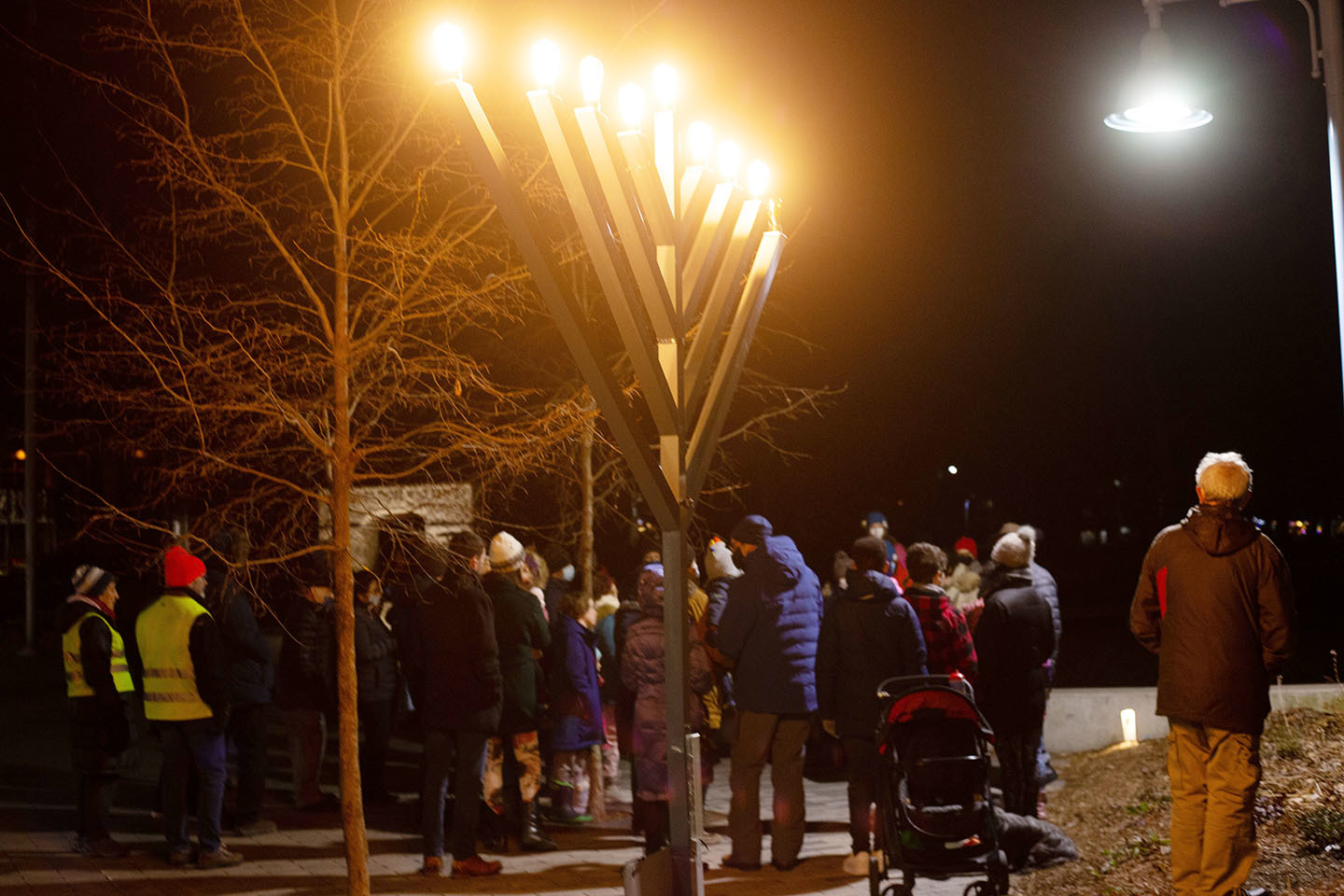
Photo: An interfaith gathering met to light a newly installed menorah to celebrate Hanukkah. The event was a response to anti-Semitic graffiti that appeared outside Toronto United Mennonite Church. (photo courtesy Beach Metro Community News)
Winnipeg – During the pandemic, Christian churches across various faith traditions have disagreed with public health orders restricting in-person gatherings. Some church leaders challenged public health orders in law courts, their stories covered in news headlines across the country. Among Christians, there has been lament about the division and the message it sends.
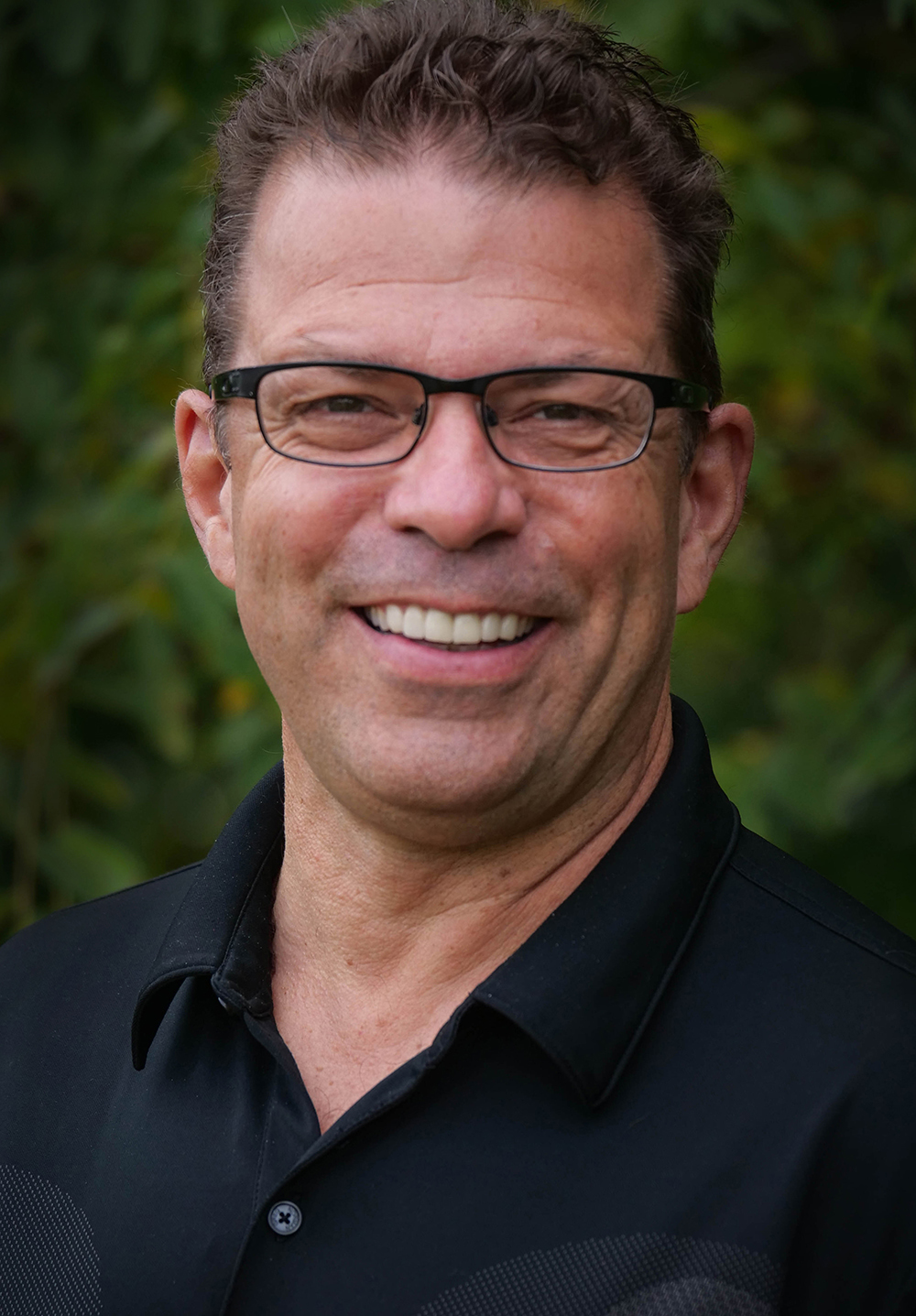 Doug Klassen, executive minister of Mennonite Church wishes it were different. But if wishes were horses, beggars would ride. Klassen, an avid horseman, acknowledges the truth in the old Scottish proverb.
Doug Klassen, executive minister of Mennonite Church wishes it were different. But if wishes were horses, beggars would ride. Klassen, an avid horseman, acknowledges the truth in the old Scottish proverb.
But Klassen is a praying man, figuratively seated in the saddle of a horse named Christian Unity. So he’s asking Mennonites to pray during the Week of Prayer for Christian Unity (WPCU) taking place across Canada from Jan. 18 – 23.
Klassen has been personally feeling a deep and recurring call to prayer. He sees Christian unity as not just an expression of desire, but also a call to action. “When we unite in the ancient spiritual discipline of prayer, across national and political lines, our petitions do more than reach a listening God. We send a unifying message that Christians are built to lovingly care for humanity and all of creation.”
Klassen is hoping Mennonites re-engage in the event after a pause due to MC Canada re-structuring, followed by pandemic restrictions. “We are living in anxious times. The effects and uncertainties of war, civil unrest, racism, environmental dangers, and hate lie not just in other countries, but with us as well,” he said. High on his mind is the influx of Ukrainian war refugees into Canada, the tragedy of missing and murdered Indigenous women, and potential for more “Freedom Convoys”.
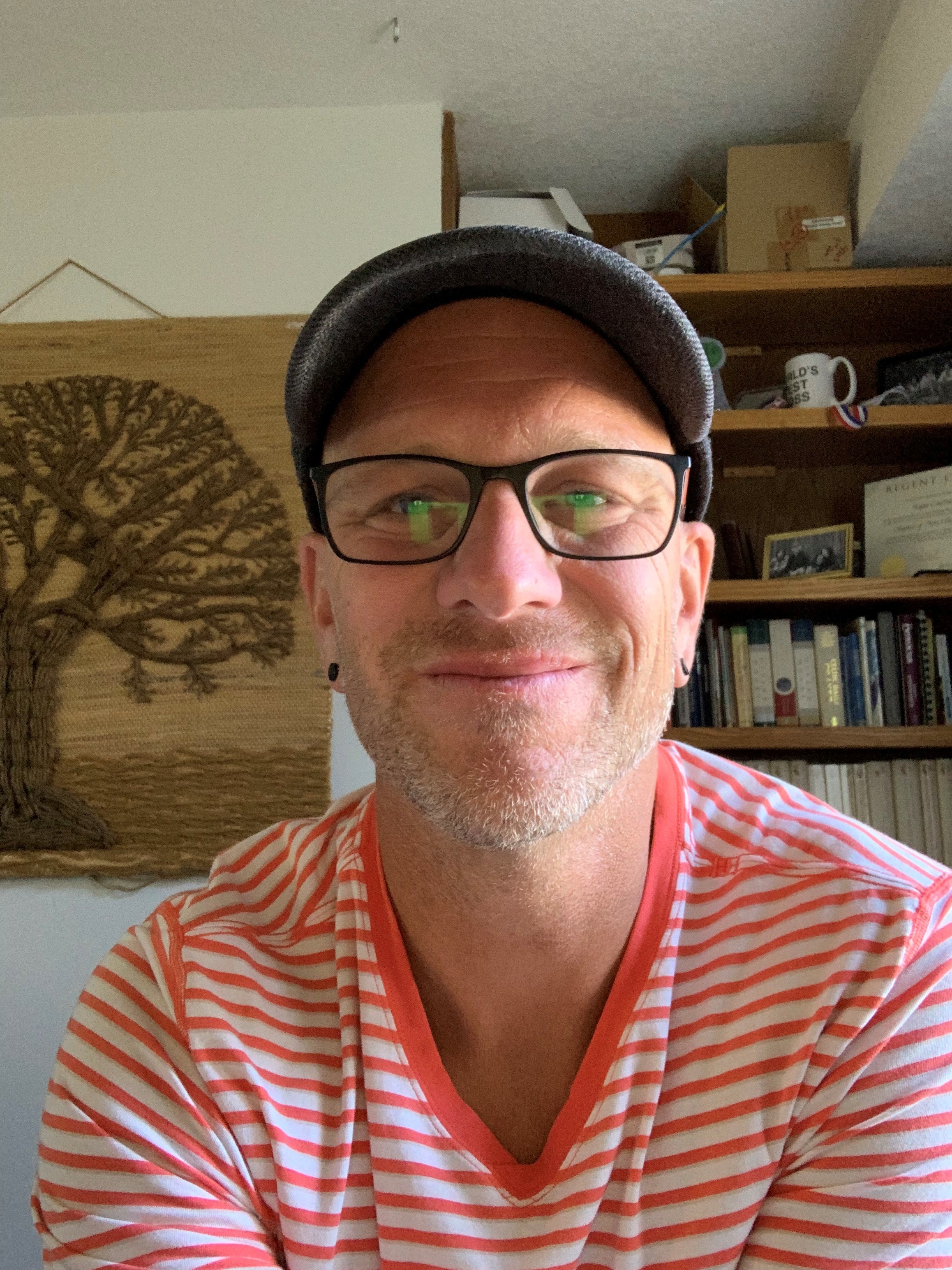 Three provinces over from Ottawa, Ryan Dueck bears a candle of hope for Christian unity. The pastor of Lethbridge Mennonite Church, together with his local ministerial has participated in the WPCU on numerous occasions in past years. The group represents Catholics, Anglicans, Baptists, Lutherans, Presbyterians, United Church, and the Salvation Army.
Three provinces over from Ottawa, Ryan Dueck bears a candle of hope for Christian unity. The pastor of Lethbridge Mennonite Church, together with his local ministerial has participated in the WPCU on numerous occasions in past years. The group represents Catholics, Anglicans, Baptists, Lutherans, Presbyterians, United Church, and the Salvation Army.
“I try to remain open to collaborating with Christians across the spectrum and to encourage our church to do the same… and to remind us that our unity in Christ ought to transcend our political allegiances,” wrote Dueck in an email.
Dueck’s engagement in WPCU strengthened relationships with leaders from other local churches, friendships that were instrumental to resettling a refugee family from Syria in 2016. Welcoming the sixteen-member extended family to their community was an “all hands to the pump” effort so remarkable it was covered by CNN.
Dueck accepts speaking invitations from a variety of Christian traditions, expessing hope “That the church would be a force bringing people together rather than keeping them apart.” His Alberta congregation also participates in an Epiphany Scripture Reading Exchange with other churches, and Lenten lunches each year, with churches taking turns hosting a simple lunch and devotional.
“People like seeing people they know from the broader community – ‘Oh, I didn’t know you went to church, too!’ It’s significant for many who may have grown up with fairly rigid denominational boundaries.”
If he has a lament about WPCU, it’s that participation trends heavily toward older folks. Dueck says there will be no local WPCU event in 2023. “We looked at the dwindling, aging numbers of participation in this service, and decided that our energies would be better spent elsewhere.”
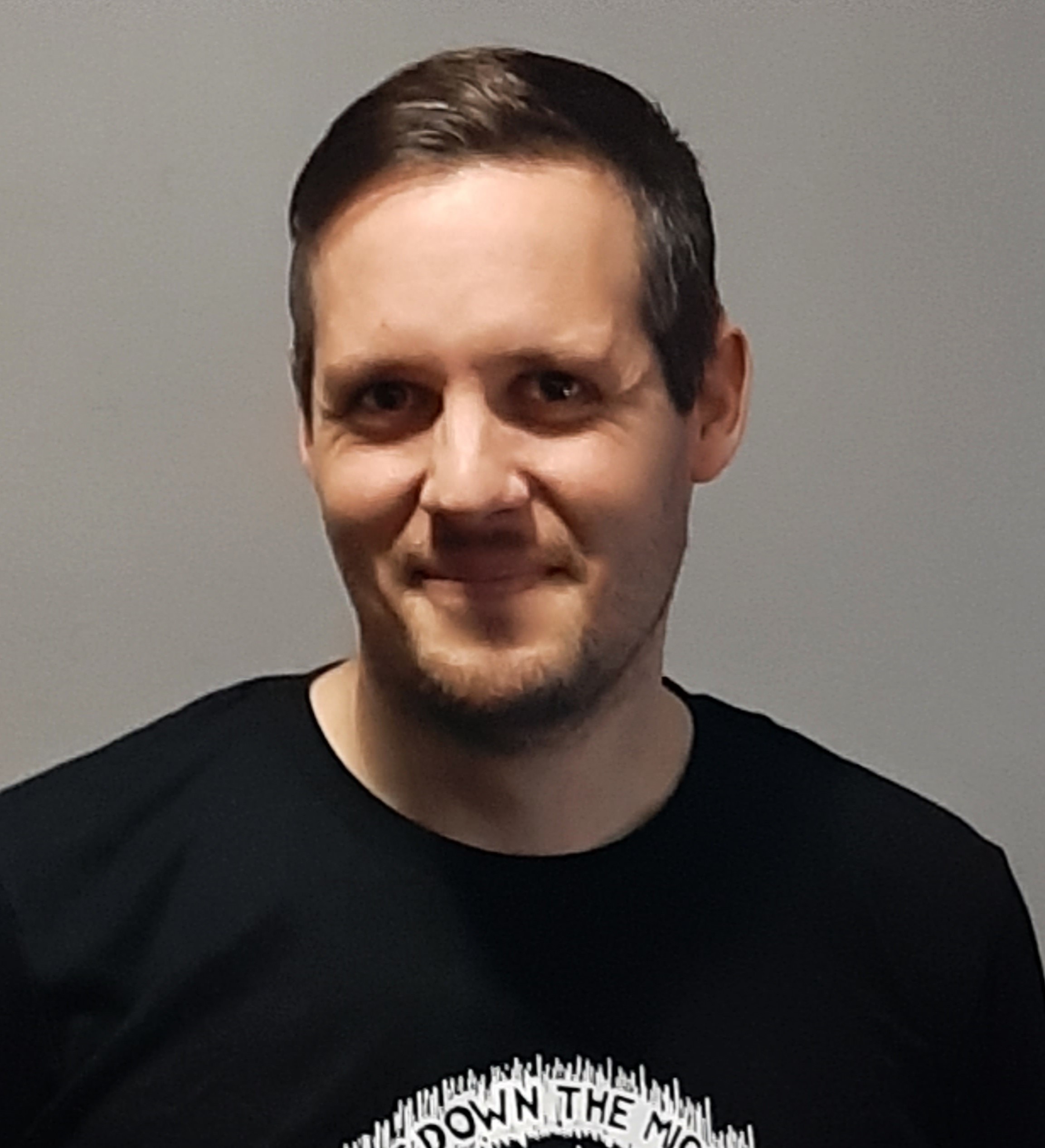 For Peter Haresnape, one of the pastors at Toronto United Mennonite Church (TUMC), Christian unity extends to interfaith relationships. The congregation is part of an interfaith ministerial in the Beaches neighbourhood. They exchange resources and ideas, and collaborate to collect Food Bank donations.
For Peter Haresnape, one of the pastors at Toronto United Mennonite Church (TUMC), Christian unity extends to interfaith relationships. The congregation is part of an interfaith ministerial in the Beaches neighbourhood. They exchange resources and ideas, and collaborate to collect Food Bank donations.
When anti-Semitic graffiti appeared on the sidewalk outside TUMC in mid-December, he immediately sent out inquiries to churches in the congregation’s neighbourhood ministerial, looking to organize a call to prayer in support of the Jewish community. Chabad of Danforth-Beaches, a Jewish educational and outreach centre, was already on the same path.
Haresnape was invited to speak at the event, a response that featured the lighting of a newly installed outdoor menorah. “We were so sorry to see this on the sidewalk and our church would like to respond with an outpouring of love and solidarity, and we want you to know we have your back,” Haresnape told the gathering.
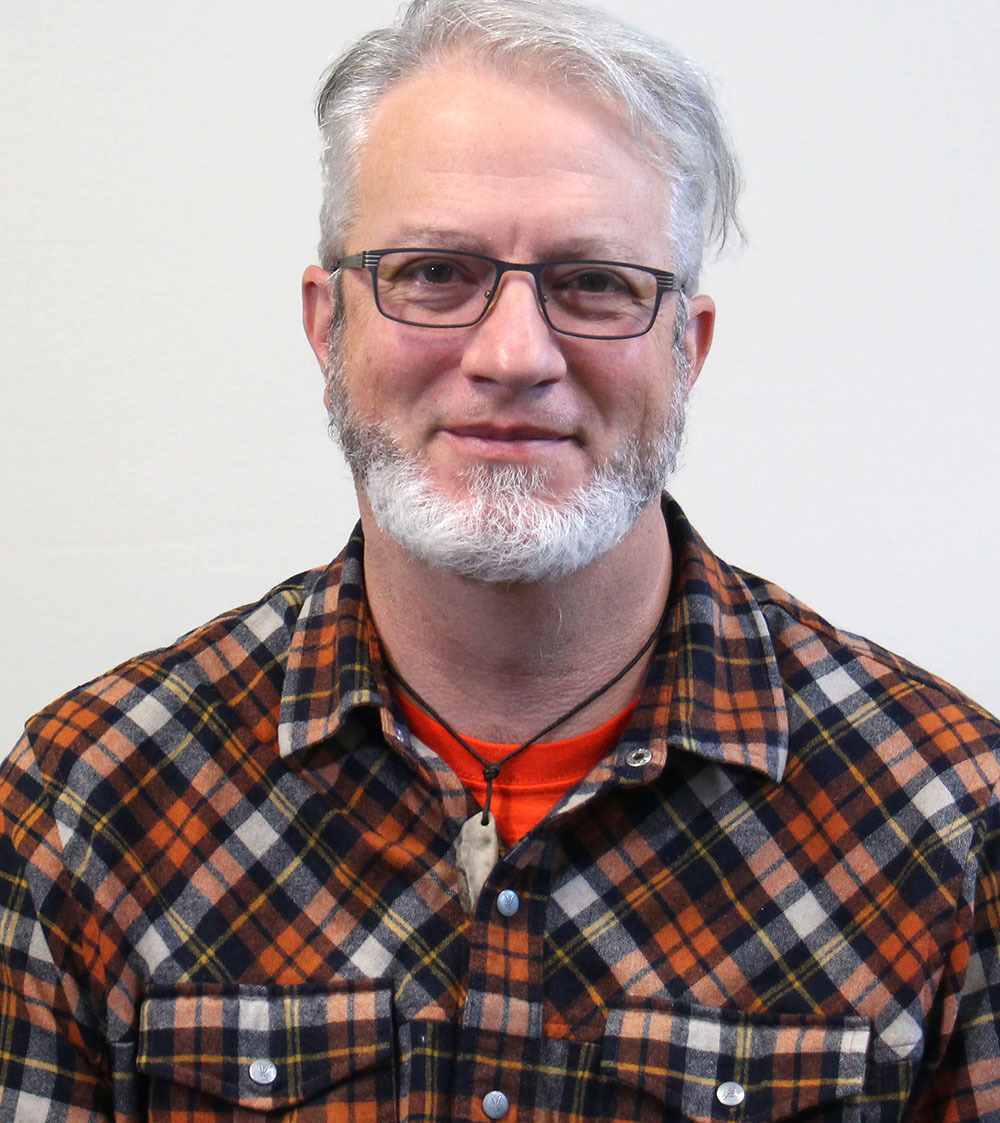 Jonathan Neufeld believes the leading edges of Christian unity involve reparations to people who have been sidelined by white colonialism. The newly arrived bi-vocational pastor at Charleswood Mennonite Church in Winnipeg connected with inter-Christian and inter-faith groups in his former ministry with Seattle Mennonite Church.
Jonathan Neufeld believes the leading edges of Christian unity involve reparations to people who have been sidelined by white colonialism. The newly arrived bi-vocational pastor at Charleswood Mennonite Church in Winnipeg connected with inter-Christian and inter-faith groups in his former ministry with Seattle Mennonite Church.
The congregation recently gifted a former Mennonite Voluntary Service house it owned, after a lengthy process expertly shepherded by staff at the Church Council of Greater Seattle. The value of the eight-bedroom home had increased considerably as the community gentrified. Today, it is the House of Constance, a residence for eight to ten Black trans women and femmes on the edge of a historically redlined community. Redlined communities suffer racial discrimination in housing.
Neufeld is also co-chair of the Anabaptist Coalition to Dismantle the Doctrine of Discovery, which has connected with the 160-member Faith Action Network (FAN) in Washington state. Together they work to “Protect Indigenous children from being disappeared into the assimilation-focused system of child welfare,” said Neufeld.
“Broad based interfaith organizing demonstrates that faith communities are watching and concerned about sovereignty,” said Neufeld. The work dovetails with his other job as Indigenous Relations Coordinator with Mennonite Church Canada.
Unifying in prayer across the lines of personal or denominational preferences expresses a “holy indifference” and an intention to discover “the mind of Jesus” together, said Neufeld. “That collective discernment is our invitation and call to move and act in the world.”
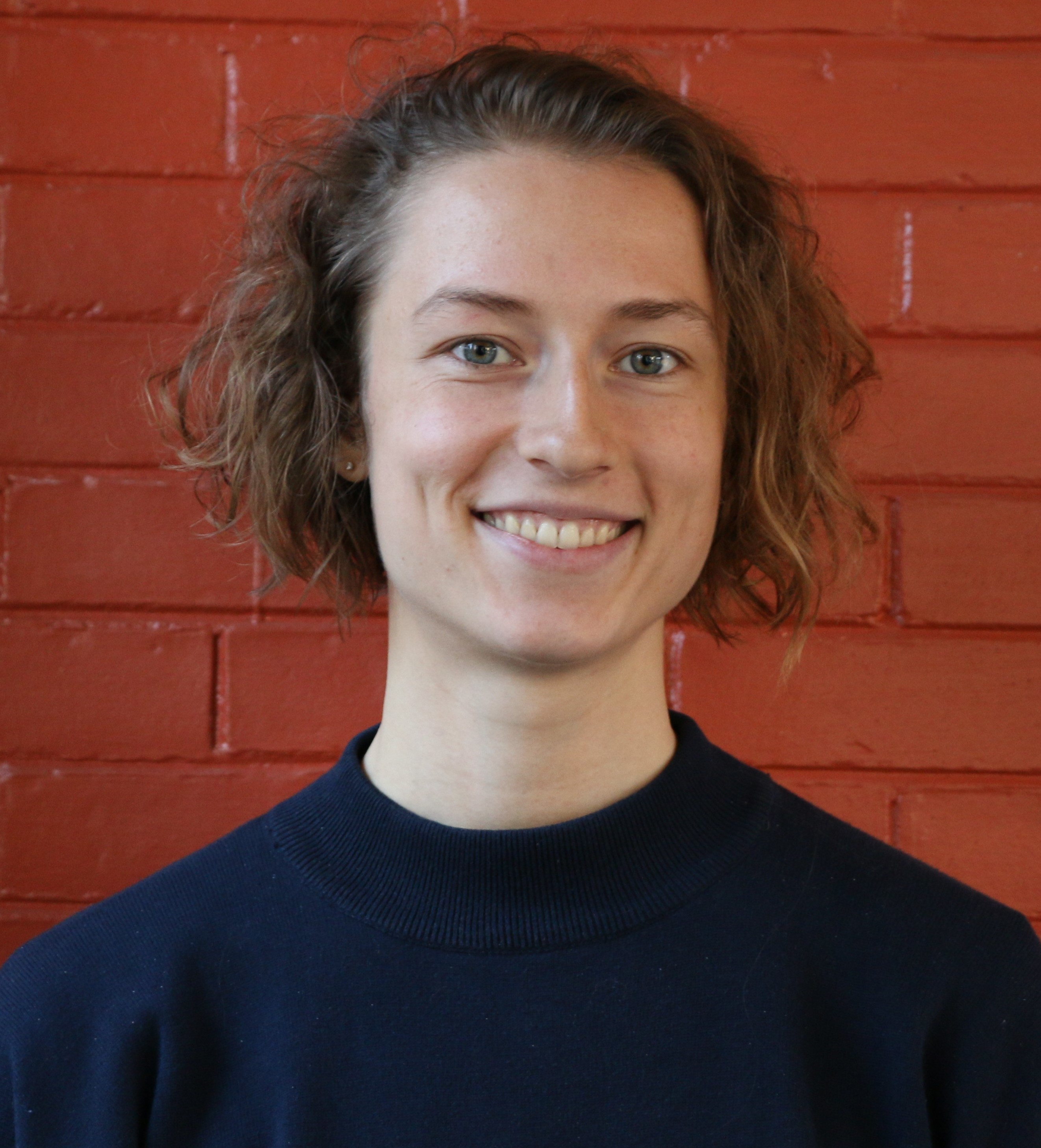
Klassen is confident Mennonites will be invigorated by participating. “It’s a chance to kneel with our Christian cousins from other backgrounds, to show the watching world that Christian compassion is a light that shines through the dark shadows of hate and division.”
The Minnesota team that created the WPCU resources were influenced by the killing of George Floyd in 2020 and is represented by six Black, two Indigenous, and one Latine Christian leaders. The event takes place across Canada from Jan. 18-23. Resources are plentiful here, where a list of locations for scheduled events can also be found.
-30-